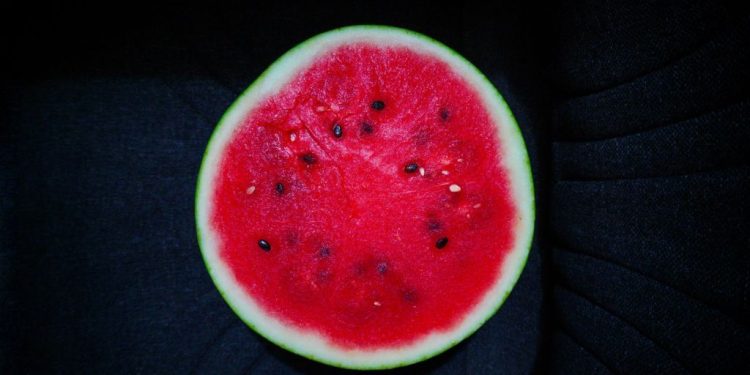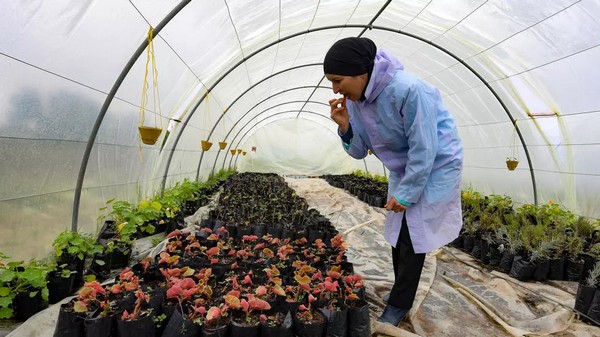Agricultural work is being actively carried out at the Vostok Antarctic station. Russian scientists have already harvested tomatoes there, and in the future they plan to grow cucumbers and watermelons in the coldest point of the planet. The experiment is being conducted in preparation for the creation of a space base on the Moon.
New technology
Specialists of the Arctic and Antarctic Research Institute (AANI) are engaged in the cultivation of fruit crops. In November 2022, researchers reported that they harvested 28.5 ksh of tomatoes and 9 kg of pepper per square meter for the year. Vegetables were grown in a special greenhouse. In addition, the polar explorers also grew greens: cabbage, mustard, watercress, sorrel and arugula. And each of the herbs gave an excellent harvest.
Exactly half of the grown vegetables and greens go to the table of polar explorers, and the rest is canned and sent for research to the Agrophysical Research Institute (AFI) in St. Petersburg. It is there that the technologies of growing various crops without using soil are being investigated. So, there is hydroponics, when plants receive nutrients from a specially prepared solution. Aeroponics involves spraying the roots with an aerosol.
For the Arctic area, St. Petersburg scientists decided to combine elements of well-known techniques, calling their concept panoponics. Agrophysicists have created phytotechnological complexes that combine solid, liquid and air environments.
Instead of soil, a thin-layer fabric resembling fabric is used. Through the slit capillaries, a nutrient solution enters the seeds, which contains various useful elements. Their concentration corresponds to natural standards and is absolutely not dangerous for humans. Sunlight is replaced by specially created LED lamps close to the solar spectrum.
An analogue of the Moon
A few years ago, the Institute of Biomedical Problems of the Russian Academy of Sciences (IMBP), which studies the impact of the space environment on humans, became interested in the API project. In the course of early studies, it turned out that crop production helps people cope with prolonged isolation in a confined space and has a positive effect on the psychological state.
It is impossible to organize a space similar to a vegetable garden on an orbital station due to lack of space and water. Therefore, the specialists of the IMBP proposed the Vostok station to the scientists of the API and AANIA as the site of the experimental project “Plants”.
The remote continental station turned out to be the best terrestrial analogue of potentially habitable objects on other planets. Experiments in the “East” should become the scientific basis for the colonization of Mars and the Moon.
The research at the Arctic station is monitored by magnetologist Andrey Teplyakov. He takes care of the “garden” in his spare time from observing the magnetosphere. According to him, the Antarctic vegetable harvest usually accounts for 70-98% of the harvest obtained at the agrobiopolygon AFI. However, it is still 1.5-2 times higher than in modern greenhouse plants both in Russia and abroad.
“However, I cannot say how the fruits differ in taste from greenhouse ones: for this you need to try the same variety from the greenhouse of the “East” and from the greenhouse”, says the scientist.
It was Teplyakov who ordered watermelons from St. Petersburg agrophysicists for a new experimental cultivation. Berries will be grown in the “East” in February, and the first harvest is expected after 68 days. The magnetologist clarified that the ripe watermelons will be much smaller in diameter than we are used to – up to 20 cm. But in terms of taste, they should not be inferior to Astrakhan fruits in any way.
“If we can grow watermelons in Antarctica, then it can be done everywhere”, Teplyakov explains.
Harvest for everyone
The developments of AFI specialists are aimed at creating a technology that will ensure a harvest even in the most inaccessible areas of the country. For example, in Siberia, the cost of vegetables is quite high due to difficulties with their cultivation and delivery to the region. Panoponics will allow you to grow vegetables indoors with minimal heating costs.
The most difficult and responsible part of the work of caring for the northern city is pollination. There are no bees in the “East”, so the pollination is carried out by a person manually. The main thing is not to miss the right moment, since the pollination period is only one or two days.
Nevertheless, AFI specialists are not yet able to assess the possibility of deploying such a technology for industrial scale. This requires additional tests.
A source: https://live24.ru










